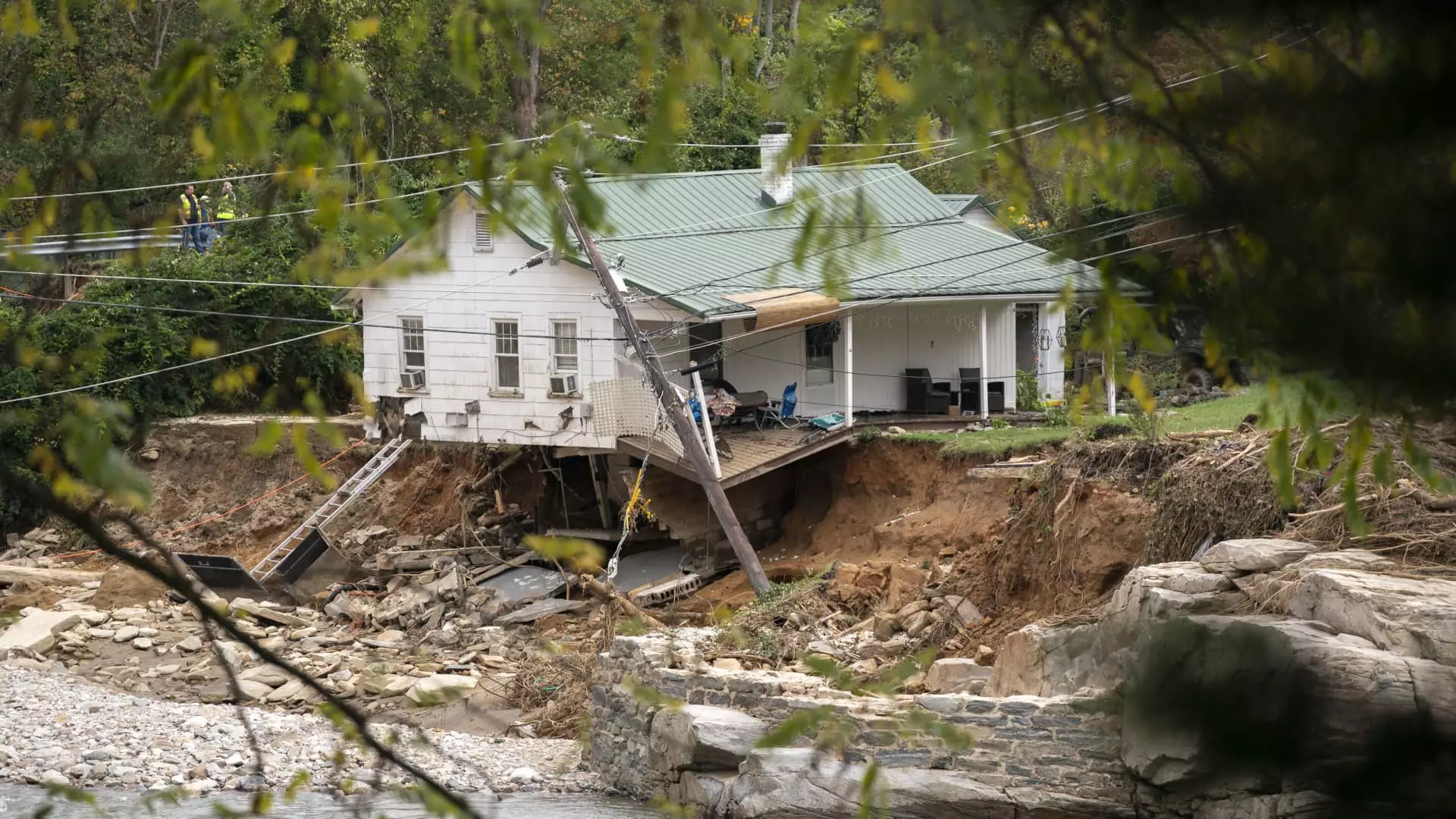The devastating impact of Hurricane Helene has brought to light the inadequacies in current homeowner insurance policies regarding flood coverage. With insured losses surpassing $6 billion, the true extent of the financial impact lies in the significantly higher uninsured losses, particularly evident in North Carolina. This phenomenon is largely due to the misconception that homes outside designated flood zones are immune to flooding risks. An alarming statistic reveals that only 4% of North Carolina homes are within FEMA-designated flood areas, leaving the vast majority of homeowners unprotected against potential flooding disasters.
The alarming shortfall in flood insurance among homeowners stems not just from geographical statistics but also from a broader misunderstanding of risk. Many residents mistakenly believe that their homes are safe from flooding if they are not situated in FEMA-designated zones. However, this belief is shifting, thanks to advancements in risk assessment technology. Companies like First Street are reshaping our understanding of home risk by integrating climate change factors into their evaluations. This approach reveals that nearly 12% of homes in North Carolina are actually at risk of flooding, challenging the conventional view that flood insurance is unnecessary for most.
In a remarkable step towards bridging the information gap, First Street has partnered with platforms like Zillow to provide property-specific climate risk data. This initiative aims to make buyers and sellers more informed and proactive regarding the climate risks associated with property ownership. As Skylar Olsen, Zillow’s chief economist, notes, “Climate risks are now a critical factor in home buying decisions.” With the integration of First Street’s risk scores on for-sale listings, potential homeowners can view detailed assessments regarding various climate dangers, such as flooding, wildfires, and extreme temperatures.
Each listing on Zillow is now accompanied by flood, fire, and wind risk scores, along with projections that extend 15 to 30 years into the future. This capability allows prospective buyers to think beyond their immediate purchasing decisions and consider long-term implications, an essential perspective in an era marked by escalating climate-related incidents.
Consumer attitudes are shifting dramatically, reflecting an increasing awareness of climate risks. A recent survey indicated that over 80% of prospective homebuyers now consider climate risk when making purchasing decisions. Flood risk emerged as the paramount concern, further emphasizing the need for increased transparency concerning property vulnerabilities. Zillow’s analysis of August listings corroborates this shift, noting a significant uptick in properties with major climate risks compared to previous years. With 16.7% of new listings facing severe wildfire threats and 12.8% vulnerable to flooding, the urgency for buyers to incorporate climate risk assessments into their decision-making has never been more crucial.
As climate risk consciousness grows, the implications for real estate markets are becoming increasingly evident. The cost of insurance—a factor directly influenced by climate risk assessments—will invariably shape home values. With insurance expenses projected to rise alongside the perceived necessity for comprehensive coverage, properties situated in high-risk areas may experience declining market values. Ed Kearns of First Street asserts that the direct impact of quantifying risk through evaluations may create a tangible effect on real estate prices, emphasizing that rising insurance costs will inevitably reflect on property values.
The shifting climate landscape necessitates a profound transformation in the way homeowners and prospective buyers approach insurance and property value assessments. With innovative risk assessment technologies emerging and increasing consumer awareness, there is a pressing need for buyers to prioritize climate-related data in their decision-making processes. By bridging the gap between perception and reality regarding flood risks, companies like First Street and platforms like Zillow are empowering consumers to make confident, informed choices about their home investments in an uncertain climate future.

